Phoenix LiveView & GenServer
Elixir Phoenix Vinicius Negrisolo
Vinicius Negrisolo
My goal here:
My Goal is to talk about how GenServer defines Web Development for LiveView
But before let’s talk about Ruby
class SyncData < ApplicationSubscriber
attach_to %w[address phone]
attr_reader :model
def created(model)
@model = model
case model
when Address
sync_address
when Phone
sync_phone
end
end
def sync_address
body = model.slice(:address1, :city, :state, :zip)
API.post(url: "/address/#{model.user_id}", body:)
end
def sync_phone
body = model.slice(:number)
API.post(url: "/phone/#{model.user_id}", body:)
end
end
Is concurrency a problem in Elixir?
- messages between processes
- no threads with shared memory
- data immutability
- function with args
- GenServer with state
- ETS/PG and other data sources
What is a GenServer 1/2
A GenServer is a process like any other Elixir process and it can be used to keep state, execute code asynchronously and so on.
- **asynchronously
- built in mailbox for incoming messages
- one message at a time
- builds and keep data in memory
- other processes can interact with
What is a GenServer 2/2
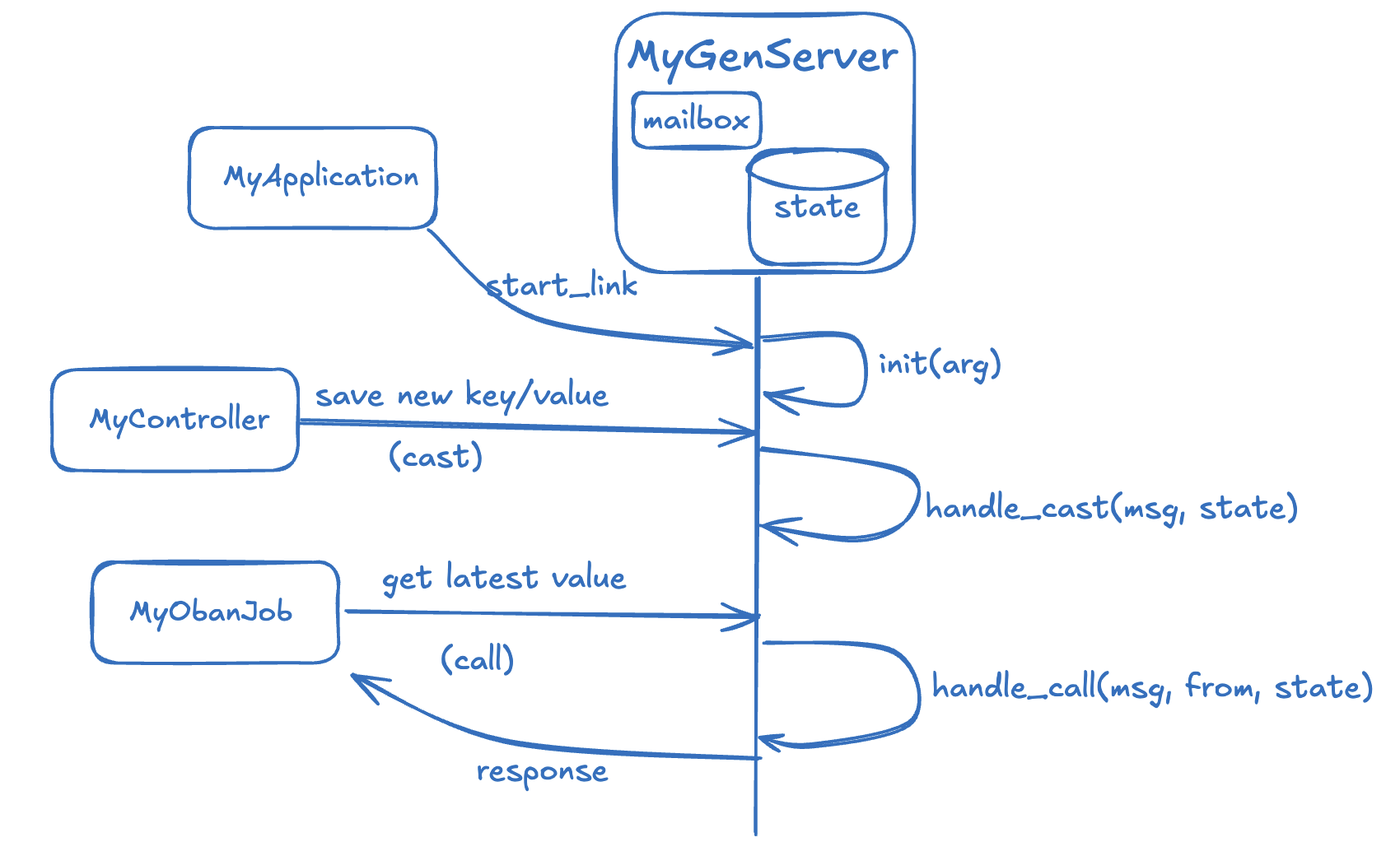
Phoenix LiveView Basics
- uses Phoenix Controller for HTTP GET
- uses Phoenix Channel for WS
- 2 calls once on
mount,live_paramsandrender
Phoenix LiveView HTTP vs WS
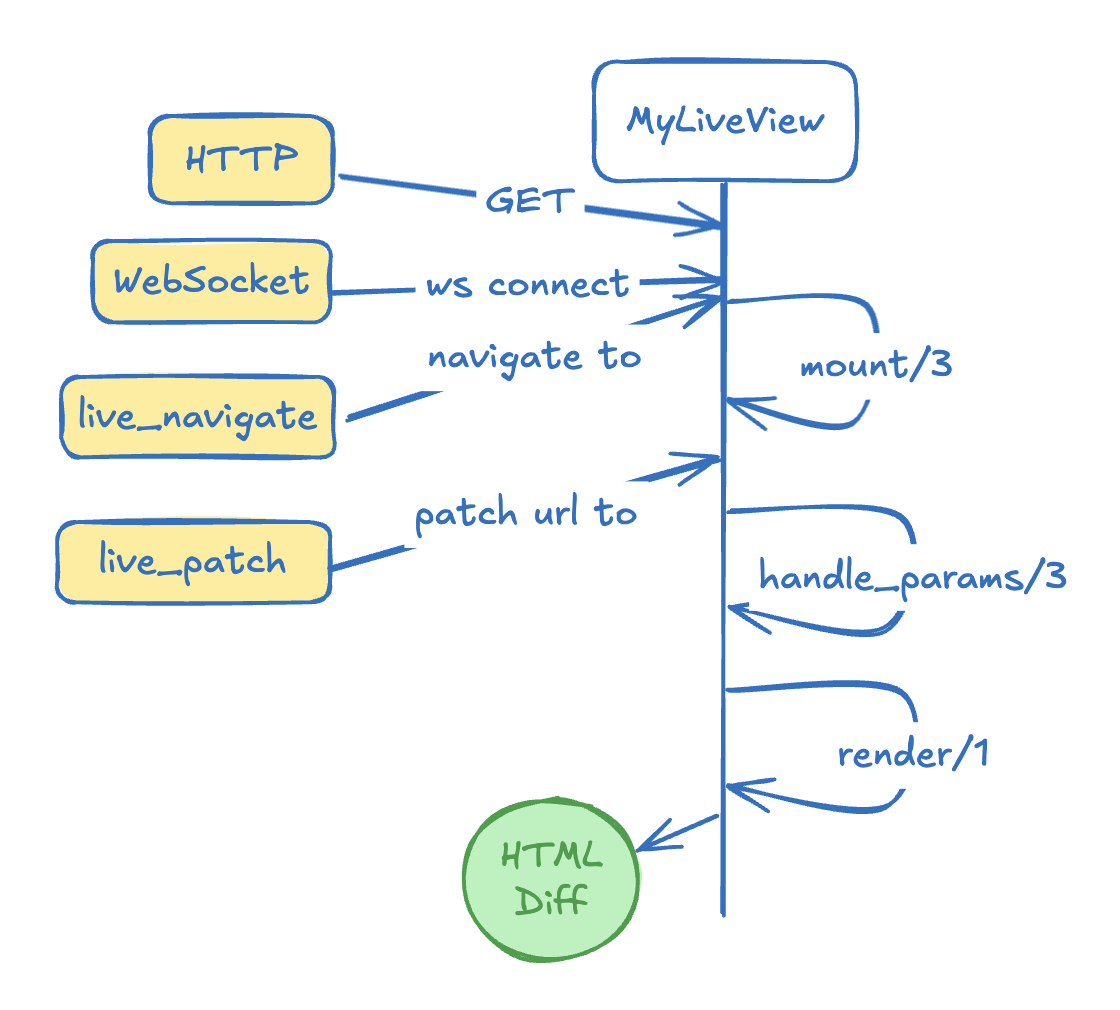
Phoenix LiveView Client Events
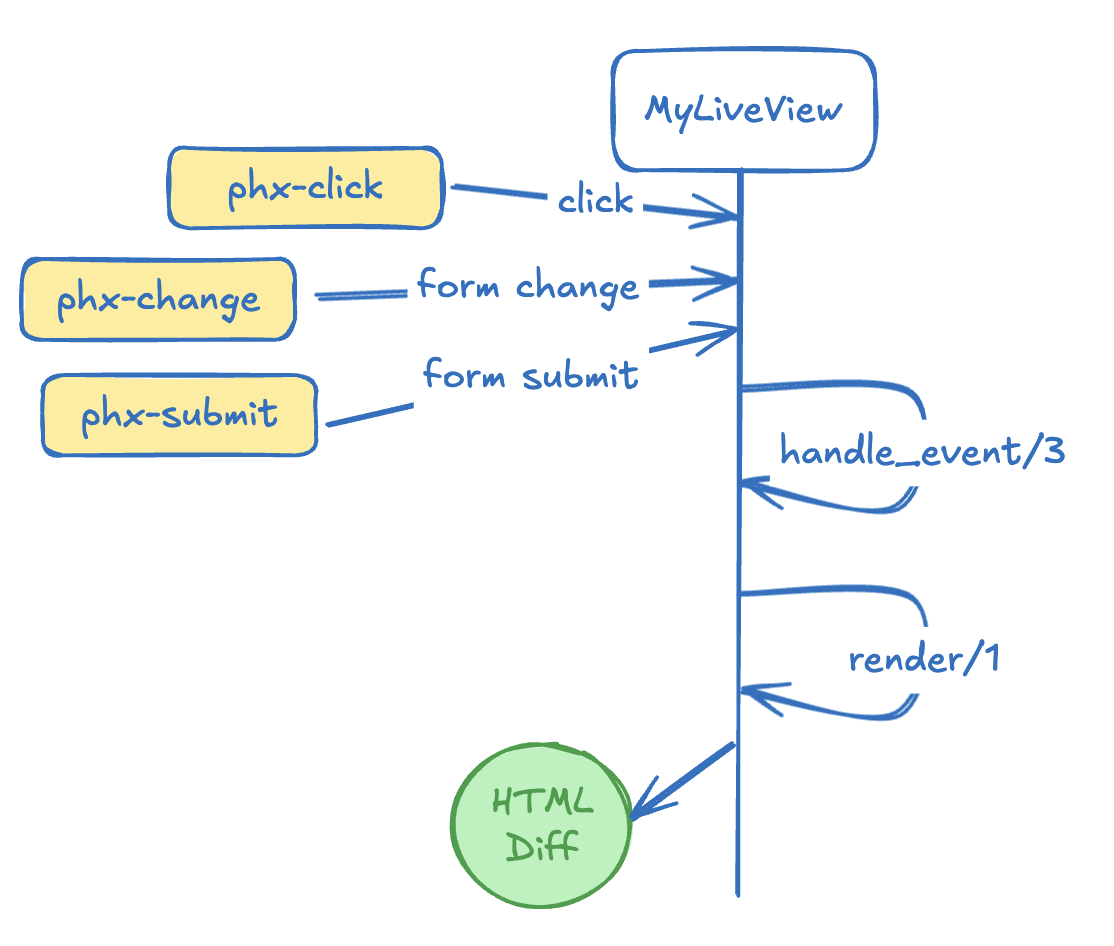
Phoenix LiveView PubSub
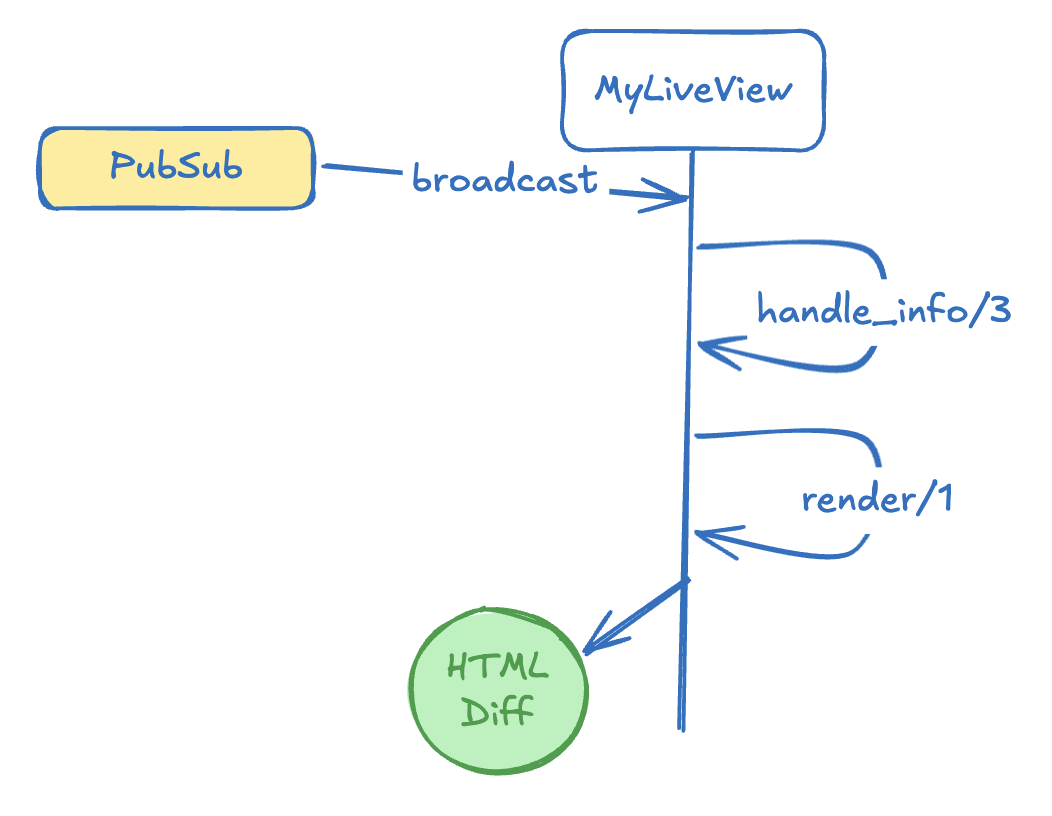
LiveView & GenServer
- LiveView uses Phoenix Channel
- Phoenix Channel uses GenServer
- WS connection has their own state
| characteristics | implications |
|---|---|
| in memory state can go away | the deploy problem |
| state growth increases server memory | too much data problem |
| user can get locked on long queries | 1 message at a time problem |
How it feels
| How it feels | How’s it Supposed to Feel |
|---|---|
 |
 |
The deploy problem
- find a less volitile way to store the user state:
- query params (open modal)
- form inputs (leverage form recovery after 1st connection)
- LocalStorage
# router
scope "/families", FamilyLive do
live("/", Index, :table)
live("/board", Index, :board)
live("/new", Index, :new)
end
Too much data problem
- LiveView Streams => temporary assigns
stream(socket, :songs, [song1, song2, song3])
def mount(_params, _session, socket) do
stream(socket, :songs, ["song1", "song2", "song3"]) |> ok()
end
def handle_event("add_something", %{"song" => song}, socket) do
socket |> stream_insert(:songs, song, at: -1) |> noreply()
end
def render(assigns) do
~H"""
<ul id="songs" phx-update="stream">
<li :for=\{\{dom_id, song} <- @streams.songs} id={dom_id}>
<%= song %>
</li>
</ul>
"""
end
One message at a time problem
assign_async/start_async
def mount(%{"slug" => slug}, _, socket) do
socket |> assign_async(:org, fn -> {:ok, %{org: fetch_org!(slug)}} end) |> ok()
end
def render(assigns) do
~H"""
<div :if={@org.loading}>Loading organization...</div>
<div :if={@org.ok? && @org.result}><%= @org.result.name %> loaded!</div>
"""
end
Phoenix LiveView Async
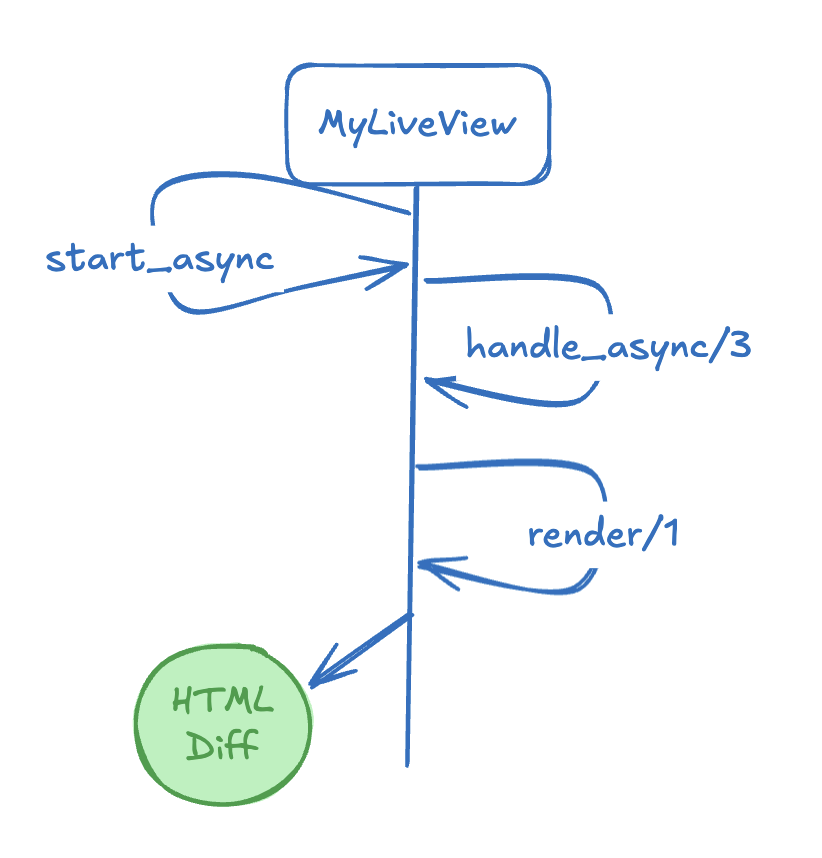
Async Stream idea
if the data takes too long to be retrieved and if it’s too much to keep in memory
- mix stream & async
defmodule MyAppWeb.Admin.UserLive.Index do
use MyAppWeb, :live_view
def mount(_params, _session, socket) do
socket
|> stream(:users, [])
|> assign_users()
|> ok()
end
def handle_async(:users, {:ok, results}, socket) do
socket
|> assign(:users, AsyncResult.ok(:users))
|> stream(:users, results, reset: true)
|> noreply()
end
def render(assigns) do
~H"""
<div class={["mt-6 flex flex-col gap-2", @users.loading && "loading"]}>
<.table id="users" rows={@streams.users}>
<:col :let={ {_id, user} } label="Role"><%= user.role %></:col>
<:col :let={ {_id, user} } label="Email"><%= user.email %></:col>
</.table>
</div>
"""
end
def assign_users(socket) do
%{current_user: current_user} = socket.assigns
socket
|> assign(:users, AsyncResult.loading())
|> start_async(:users, fn -> Repo.search(User, current_user, %{}) end)
end
end
Summary
- LV has all building blocks ready
- Major benefits:
- scales well
- fresh data for free
- easiest to refactor
- no graphql/json/xml layers
- js is no law land so kept to minimal
- LiveView is the Best tool for the job